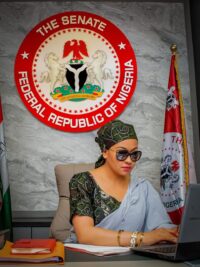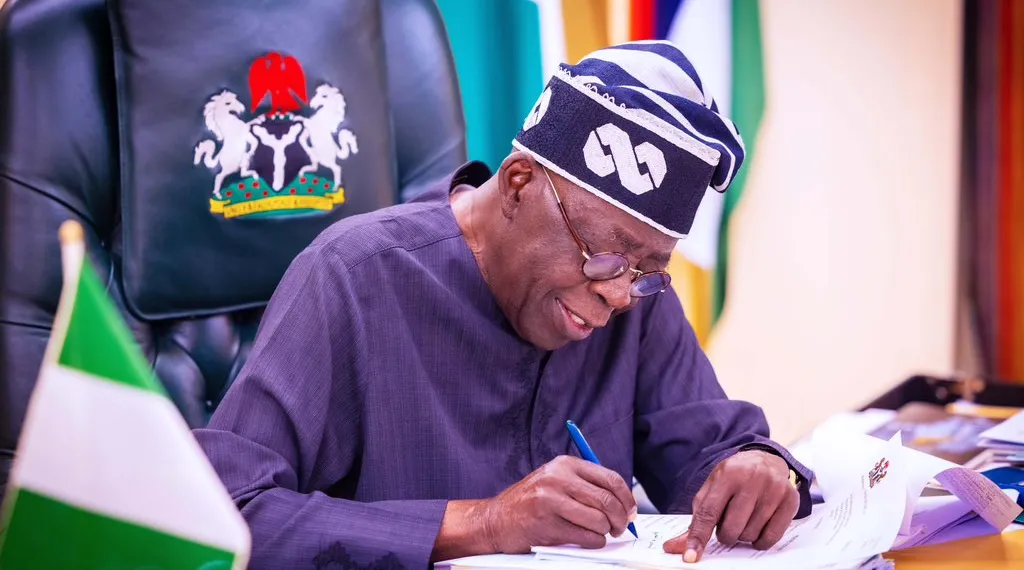July 8, 2020/NBS
Introduction
Between September of 2018 and October of 2019, the National Bureau of Statistics of Nigeria (NBS) collected the household data for the Nigeria Living Standards Survey (NLSS). NLSS 2018-19 is the first large scale household survey in a decade, focusing on measuring living conditions of the population.
The main objectives of the NLSS 2018-19 are: i) to provide critical information for production of a wide range of socio-economic and demographic indicators, including for benchmarking and monitoring of Sustainable Development Goals (SDGs); ii) to monitor progress in population’s welfare; iii) to provide statistical evidence and measure the impact on households of current and anticipated government policies. In addition, the NLSS 2018-19 could be utilized to improve other non-survey statistical information, e.g. to determine and calibrate the contribution of final consumption expenditures of households to GDP; to update the weights and determine the basket for the national Consumer Price Index (CPI); to improve the methodology and dissemination of micro-economic and welfare statistics in the country.
The NLSS collected a comprehensive and diverse set of socio-economic and demographic data pertaining to the basic needs and conditions under which households live on a day to day basis. The NLSS questionnaire includes the wide-ranging modules, covering demographic indicators, education, health, labor, expenditures on food and non-food goods, non-farm enterprises, household assets and durables, access to safety nets, housing conditions, economic shocks, exposure to crime and farm production indicators.
Several important methodological improvements were implemented in the NLSS 2018-19 compared to the last official survey from 2009-10. First, the NLSS was designed and collected using Computer Assisted Personal Interviewing (CAPI) software on tablet devices. This significantly improved the quality and speed of data collection and processing. Second, by administering a seven-day recall food consumption module instead of a month-long diary (as was done previously), the survey improved the accuracy and cost-effectiveness of collecting food expenditures data. In addition, extra effort was made to measure food quantities where households used non-standard units of measurement, resulting in better quantification of food consumption.
These improvements in questionnaire design and survey implementation techniques have produced overall high-quality data. With the support of the World Bank, the NBS adopted the best practices in the collection and processing of the NLSS household data. As is often the case, making such improvements and achieving high standards in survey implementation often comes at the expense of comparability with past survey rounds. Recognizing the benefits that come with a better survey infrastructure, a deliberate decision was made to use the NLSS 2018-19 as a new and improved baseline for Nigeria’s living standards survey system.
This report consists of two parts: it starts by describing the design, implementation process and quality assurance of NLSS 2018-19. This is followed by a set of tables, which provide comprehensive picture of households’ living conditions across multiple dimensions: demographic, education, health, employment, non-farm activities, living amenities and infrastructure etc. The report aims at providing the policy makers and other stakeholders with multidimensional data to understand the factors affecting observed social and economic outcomes in the country.
Sample Design and Weights
The sample of enumeration areas (EA) for the NLSS 2018-19 were drawn from the National Integrated Household Surveys (NISH2) master sample that has the state-level domains. Using the NISH2 master sample, 60 EAs were selected in each of the 36 states and the Federal Capital Territory (FCT). A fresh household listing was conducted in each EA, from which 10 households were randomly selected in each EA to be interviewed. The listing was conducted on a quarterly basis (approximately every 3 months) with the 60 EAs in each state being systemically allocated to a quarter to ensure broad coverage of the state in each quarter. Compared to a one-time listing at the beginning of the survey, a quarterly listing helps to minimizing attrition of households due to relocation.
The initial NLSS sample of 22,200 households from the 36 states and FCT, was set to be interviewed over a 12-month period, such that each month, approximately 50 households were to be interviewed. The response rate of households was high, above 93 percent in every state and about 98 percent overall. The final sample comprised of 22,110 households, with much of the difference from initial sample due to security challenges in the state of Borno and subsequent under coverage of the sample in that state.
The sample was designed to provide robust estimates of population’s living standards, focusing on household expenditures and poverty headcount ratios with margin of errors on average of 2 percent at national level and below 10 percent at the state levels. Thus, the sample is representative at the state, zonal and national levels. Although the sample is not explicitly stratified by urban and rural areas, it is possible to obtain urban and rural estimates from the NLSS data at the national level.
Household level weights were calculated according to the selection probability of the EAs and the households. After adjusting for nonresponse, the weights were then calibrated to 2019 total population estimates in each state (excluding Borno).
It is important to note that estimates presented in this report exclude the state of Borno. While the NLSS 2018-19 collected information from households in Borno, that sample was not representative of the whole state since only households from accessible areas were interviewed. The security situation in Borno was too unstable at the time of the survey, preventing the interviewers from safely visiting all areas in the state. The sample of EAs for Borno were selected from among the subset of EAs in the frame that were classified as “accessible”. Thus, the Borno sample is considered non-representative and not comparable to other states.
Survey Implementation
The preparation and implementation of the NLSS took place over an extended period. Design of the questionnaire commenced in 2015. As part of the questionnaire design and quality control process, pretest and pilot exercises were conducted. The pretest was conducted in December 2016 in one urban and one rural EA within the FCT. Due to logistical challenges, however, the main survey preparatory activities did not follow immediately after the pretest exercise. A more extensive pilot was conducted in June 2018 in four states – Delta, Kogi, Bauchi and Lagos. The EAs included in the pilot exercise were not part of the original EAs selected for the main survey. Lessons from the pilot exercise helped shape the questionnaire and CAPI application, as well as logistics for the main fieldwork exercise.
Following completion of the pilot, two levels of training were implemented for the main survey. The first level training (training of trainers) was held for trainers/monitors, while the second level training (training of interviewers) occurred for the NBS field personnel who would conduct the survey. At the end of each training, participants were examined, and the best candidates were selected to participate in the main fieldwork. The World Bank technical missions also provided support during the first and second level trainings and throughout the entire survey process.
The main survey data collection commenced in September 2018 and lasted 12 months. There was one data collection team per state comprising three interviewers and a supervisor. Each team traveled to an EA, interviewed all selected households, conducted community interviews, and then moved to the next EA. The order in which the EAs were covered was predetermined and randomized in order to provide more uniform coverage of the state throughout the fieldwork period. Except for scheduled breaks, the teams were in the field throughout the duration of the survey. Breaks in the fieldwork occurred in the holiday period of late December/early January as well as during the general elections held in February 2019.
To ensure that high quality data was collected, multiple levels of monitoring (in-person and remote) were implemented by both NBS and the World Bank throughout the data collection period. During the in-person field monitoring, the NBS monitors observed interviews, conducted spot-checks, addressed any issues that the team had, as well as filtered more substantial issues to headquarters for necessary action. In addition to the in-person monitoring, there was also extensive remote monitoring conducted by the NBS ICT team and the World Bank technical team. The remote monitoring included case-by-case review of each incoming interview as well as global checks for consistency, errors, and outliers. Feedback from the remote monitoring was re-routed to the field teams to be addressed.
The 2018/19 NLSS was conducted using the Survey Solutions Computer Assisted Person Interview (CAPI) platform. The Survey Solutions software was developed and maintained by the Development Economics Data Group (DECDG) at the World Bank. Each interviewer and supervisor were given a tablet which they used to conduct the interviews. Overall, implementation of the survey using Survey Solutions CAPI was highly successful, as it allowed for timely availability of the data from completed interviews and real-time quality checks.
A detailed information on sampling, weights, fieldwork and quality assurance measures is provided in the Basic Information Document published along with NLSS 2018-19 database.














